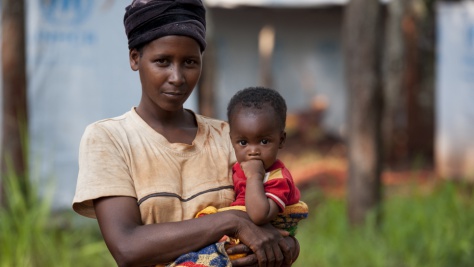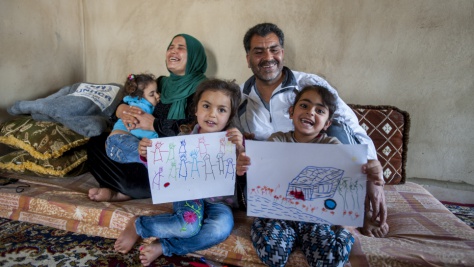How we shelter
The shelter solutions developed and implemented by UNHCR vary to meet the individual needs and to minimise the impact they have on the host community around them.
Whatever the circumstances, UNHCR has to move fast to save lives and, in the long-term, provide shelter support that will help people and families to rebuild.
There are three key phases to UNHCR shelter solutions delivery:

Emergency shelter: saving lives with tents and tarpaulins
Evidence shows that more lives are saved when help comes within the first critical period of a new emergency. UNHCR intervenes within the first 72 hours of a refugee emergency and continues to increase the speed and delivery of life-saving assistance after this point.
In the immediate aftermath of a displacement crisis, tents are often the lightest, cheapest, fastest thing for UNHCR to use to shelter people from the elements, saving lives and creating physical privacy and protection.

Transitional housing: protecting people after the emergency
Better shelter solutions are needed when those forced to flee cannot return home for a longer period of time. UNHCR replaces tents with fixed structure shelters or basic houses. Nineteen models of transitional shelters can be made using a variety of materials locally to create the best shelter for the conditions.
In urban areas, we offer cash grants to contribute towards rent or to support the household expenses of families who host refugees in their homes. We also weather-proof or repair informal accommodation and unfinished buildings.

Finding home: helping families rebuild their lives
Upon return to an area devastated by conflict or to a house badly damaged, UNHCR provides returning families with a home. The assistance may include construction of a basic house, provision of construction materials or a cash grant. Shelters are designed according to context, culture and local materials available.
UNHCR also supports families with – cash to help cover the rent while getting re-established, shelter kits if they have the skills to build the home they would like to live in, or legal support if former refugees return home to find it occupied by another.
